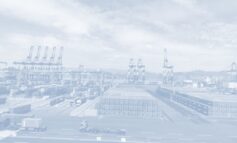 On 14 May 2013, Portius is organising a one-day conference on Port Labour in the European Union.
On 14 May 2013, Portius is organising a one-day conference on Port Labour in the European Union.
The reform of port labour has been on the European agenda for almost 25 years. In 1991, the Court of Justice found the Italian dock labour scheme to be contrary to the European treaty rules. Ten years later, the European Commission unveiled its first liberalisation plans. However, the European Parliament has since twice rejected a proposed liberalisation directive for ports, with protest from dock workers playing an influential role.
In preparation of a new European ports policy, the European Commission commissioned the port law institute Portius to conduct an in-depth study of port labour in the twenty-two maritime Member States of the European Union. This has resulted in a groundbreaking 1,400-page report that is to be premiered at a special seminar on 14 May 2013. The study deals with the organisation of the labour market, training and health and safety, and it inventories a wealth of statistics, laws and regulations, employment systems and critical issues. It outlines possible future European policy actions, ranging from a do-nothing approach to the development of a special Port Labour Regulation. The European Commission will offer the study as its input to the forthcoming European social dialogue, a new formal consultation structure for employers and employees at European level, which will be officially launched later this year.
At the end of the conference, the European Commission will present its views on port labour and social dialogue in the context of the forthcoming new European ports policy. The participants in the proposed European social dialogue will be invited to give an initial response. The final speeches will be delivered by the European Commissioner for ports (invited).
The conference offers participants a unique opportunity to become acquainted with law, practice and policy on port labour in the European Union, to grasp the essence and the policy implications of the European Port Labour Study, and to gain a fresh perspective on expected developments in the coming years.
All delegates will receive an electronic and, if so desired, a printed copy of the EU Port Labour Study. After the workshop, all participants are invited to submit factual corrections, updates and additions, following which the final version of study will be published as a book.
Find the full programme and practical information of the conference here.











